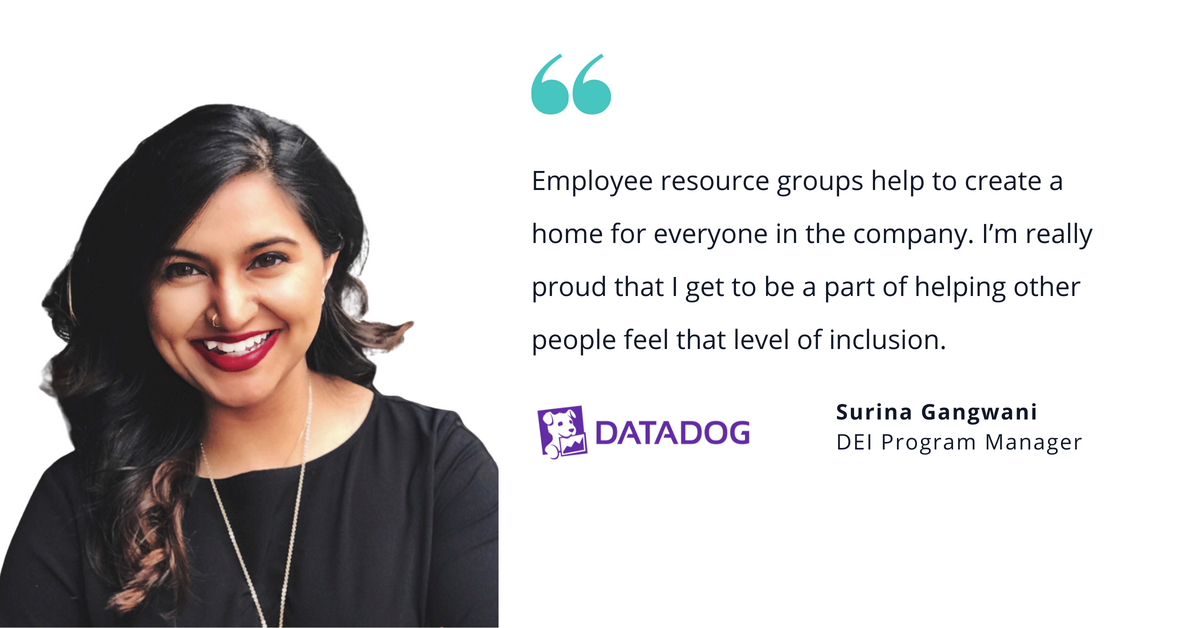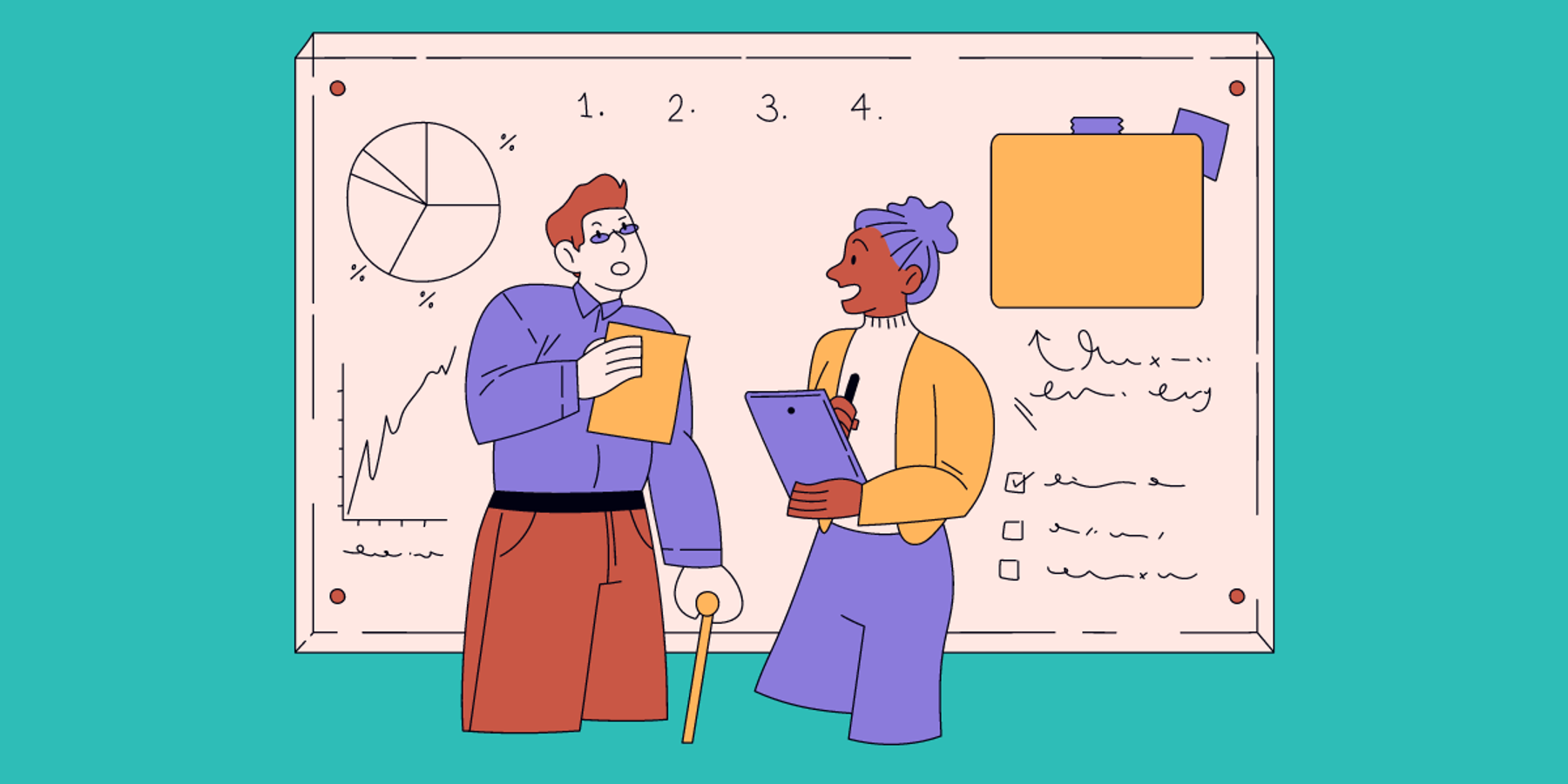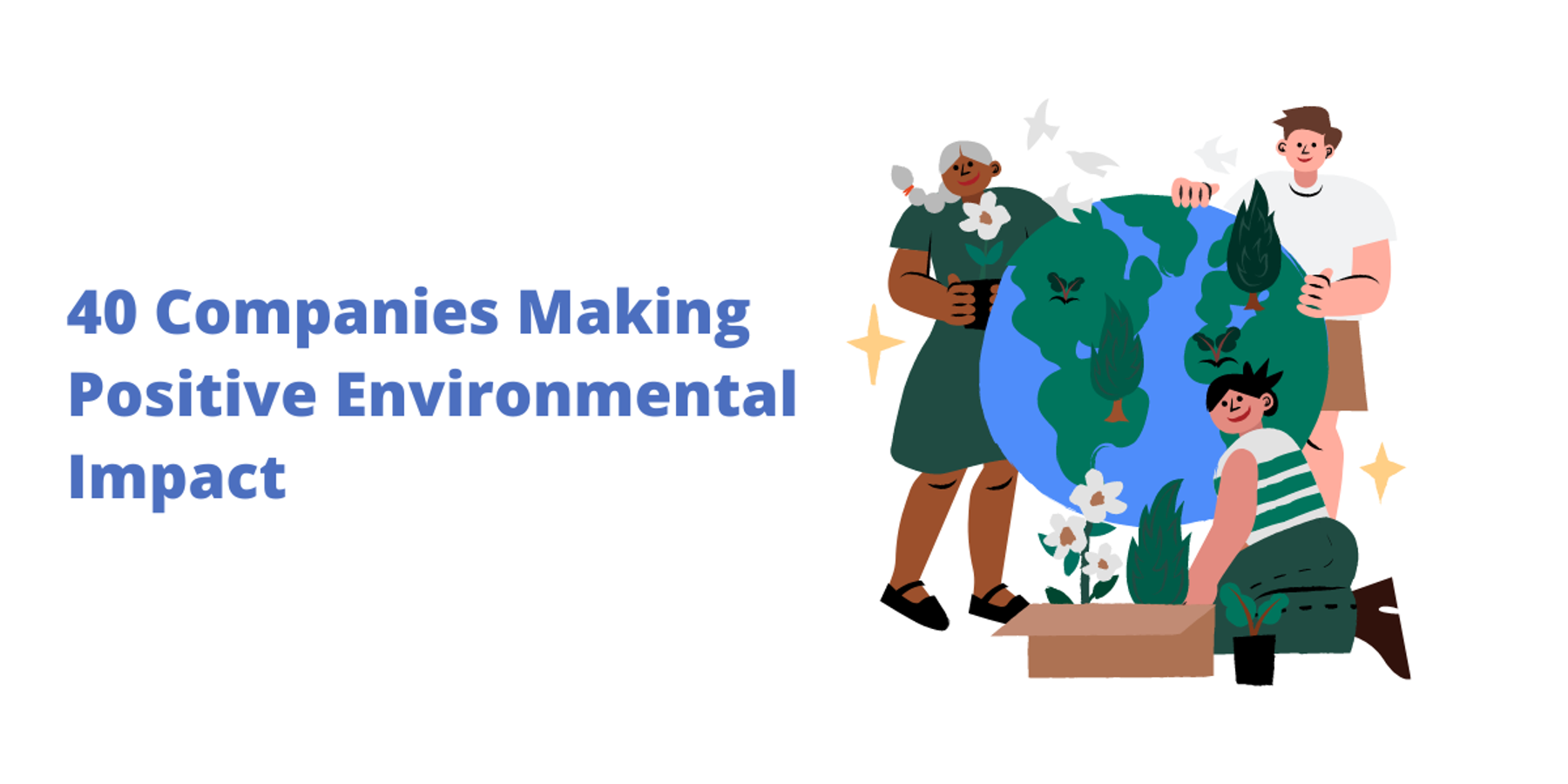Employee resource groups (ERGs) encourage belonging and camaraderie among colleagues who come together for a shared cause. They can be a critical support structure for employees — and when done right, studies show increased levels of workplace inclusion, belonging, and engagement.
This is exactly what drew Surina Gangwani to the ERG space. A former nonprofit professional, she was looking for a role that would allow her to continue positively impacting people’s lives within the corporate world.
“In my entire career, the throughline for me has always been how I can best serve people around me, so when I did make the shift, I was really conscious of ensuring that relationship building and supporting others were at the core of my work,” Surina shares.
Now the DEI program manager at Datadog, Surina helps scale the company’s ERG program while ensuring it remains employee-driven. We sat down with Surina to hear how she’s amplifying the work of each ERG — and why employees are at the core of her team’s strategy.
The official formation of Community Guilds
Surina’s first exposure to Datadog’s ERGs was actually as a member herself. At the time, the groups were fully employee-driven, without an official structure from the wider organization.
“It was very organic,” she says of her experience with AMPED (Asian, Middle Eastern, Pacific Islander Employees at Datadog). “They created a Slack group, and somebody would write in it occasionally to say, ‘Let’s do a virtual meet up!’”
In 2021, Datadog built out an official ERG program, known as Community Guilds, to provide more resources, support, and financial backing to the groups. Surina joined the Diversity, Equity & Inclusion team to help develop the communities and expand their reach.
“It’s important that these remain employee-led groups, and our role is to remove barriers and provide support resources,” she says. “I see it like this: each Community Guild member is the chef. They’re the ones doing all the cooking, and we’re just buying the ingredients for them.”
Stepping into her role as both connector & enabler
As a program manager, Surina acts as a liaison for each group to provide structure and guidance, connect them to the right people in the organization to help carry out their mission, and build success metrics together.
“I have monthly calls with the Community Guild co-leads to talk about their plans and what they want to execute. We decide what’s feasible, what the project plan looks like, and how to get started,” she says.
She calls out that as a connector, she also works closely with key stakeholders and partners to help execute the vision of each Community Guild, including People Business Partners, internal communications, and employee engagement teams.
“One thing we’ve seen great success with is leveraging our People Business Partners as a vehicle for communication. Oftentimes, an email with upcoming events can get lost in your inbox, but when a teammate or leader shouts out an opportunity during a meeting, you’re more likely to remember and participate,” Surina shares.
“With DEI work, it takes a village. The responsibility never falls on just one person.”
Avoiding a cookie-cutter approach
As the Community Guilds scale alongside Datadog’s growth, Surina and her team work to ensure the groups are relevant globally — and avoid adopting a one-size-fits-all approach.
“The hardest part is making sure that programming is available globally, and more so that it is nuanced to each region,” she says. For example, Surina has to consider questions like how Datadog can celebrate events like the U.S.’s Asian American and Pacific Islander (AAPI) month while delivering programming to offices in different regions.
Additionally, she has to consider how Datadog can honor different communities throughout the year, not just once annually.
“If I’m an employee who starts in May, I’ve effectively missed all the great work from BIT (Black in Tech),” she says. “To fix this, we encourage a ‘big moment’ twice a year for each Community Guild. This way, if you missed Black History month in the front half of the year, you won’t miss their Juneteenth celebration later on.”
The future of Community Guilds
Surina recognizes that scaling an ERG program is always a work in progress, and her team has big plans for the years to come.
“In years one and two, we really focused on fostering these groups and helping them to flourish. Now, there’s an appetite to shift toward education and allyship,” Surina says.
3 tips for scaling ERGs at your organization
Thanks to the employee-driven aspect of Community Guilds, Surina is already witnessing positive change across Datadog.
“When folks get to build this group with their own hands, it allows for more creativity and a stronger sense of community,” she says. “Plus, the Community Guilds help people to collaborate better in a work setting because they bond over something outside of their day-to-day jobs.”
This is just a sample of the impact Surina has seen, and she encourages others to seek similar employee-led efforts in their organizations. To help, she offers three tips for scaling your ERG program:
- Tailor your approach. “A monthly happy hour may work for most of our groups, but may not work for Parents and Guardians as they have school pick-up or need to get back to their little ones. Maybe that group would prefer a monthly lunch and learn, and that’s perfectly okay,” Surina says.
- Provide resources wherever possible. “In order to lift and shift initiatives, you must have a playbook that is packed with logistics and best practices,” Surina advises. This includes providing resources for co-leads, committees, and their successors, such as Datadog’s Co-Lead Toolkit with insight into building and running an ERG.
- Don’t forget that visibility is key. Surina and her team communicate early and often on Community Guild initiatives and events. She stresses the importance of employees being able to find this information quickly and know exactly how to participate. “A simple email or Slack message doesn’t cut it,” she says. “Leverage leaders, People Business Partners, Executive Sponsors, and your team to get the word out.”
At the end of the day, Surina believes that ERGs create a home for everyone in the company. “I really can’t say enough about what that does for a person’s day-to-day work,” she says with a smile. “I’m really proud that I get to be a part of helping other people feel that level of inclusion.”
Want to be a part of Datadog’s culture of inclusion? Check out the job openings here.



